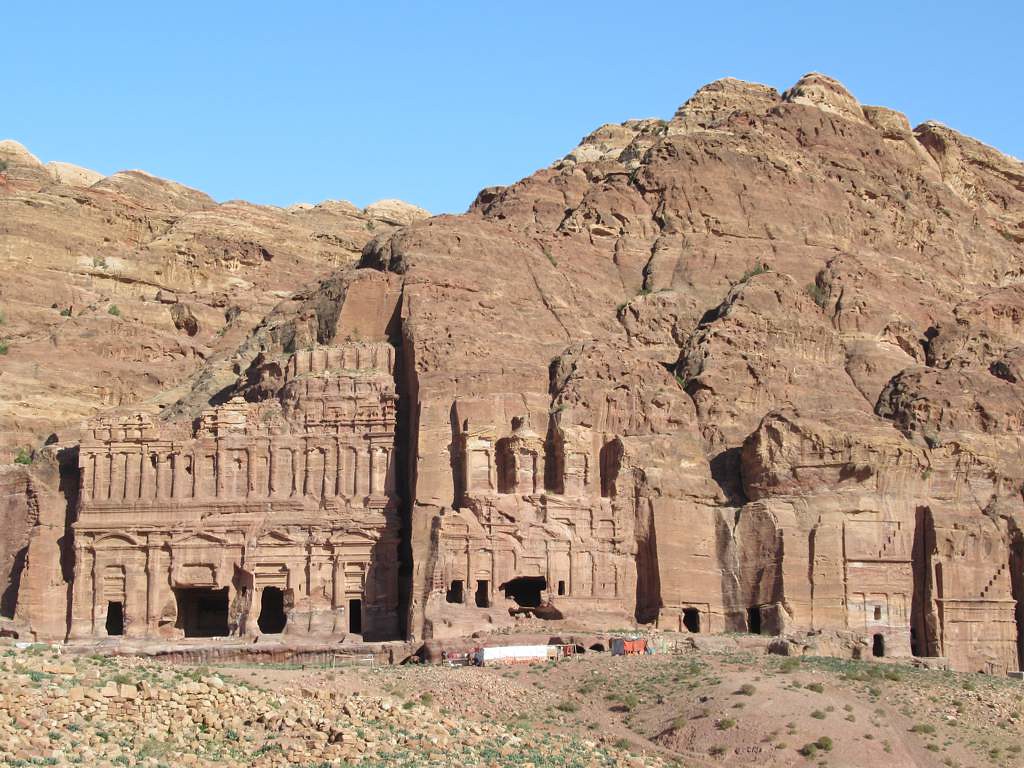Blog
School, Transgender, and Your Kids
Thursday, May 21, 2020
These days, it seems like many Christians are preoccupied with coronavirus conspiracies of various sorts. I have little to say about all that, except to observe that the conspiracy theorists must have much more faith in the competence of the human race than I do. I think, though, that we would be better served to pay less attention to the conspiracies and more attention to the daily efforts of those who are opposed to the cause of Christ.
Take, for instance, this report from the Alliance Defending Freedom. For those of you who aren’t familiar with the ADF, it’s a nonprofit dedicated to the advancement of conservative legal causes. It is a serious organization with serious deep pockets and serious lawyers. When the ADF says something, it’s not on the same level as russiatrollbotnews.com. This really is happening.
Essentially, a number of conservative parents who live in Madison, WI have filed suit against the Madison public-school district. They learned that the district has been engaged in a stealthy campaign to promote transgender ideology. From kindergarten on up, students are being taught that gender is a spectrum, rather than being biological and binary. Parents have not been notified about this. If a child decides that they are transgender, school employees are to help them transition without parental notice or consent. In order to make sure that Mom and Dad remain in the dark in such cases, district policy is to refer to transitioned Janey as un-transitioned Johnny in all communications with the home—to deceive parents.
In short, the Madison school district is attempting to substitute school input for parental input in one of the most consequential moral decisions a child can make. A month ago, I wrote about Harvard professor Elizabeth Bartholet’s desire to outlaw homeschooling. Among other things, she argued that public schooling was necessary to expose children to “ideas about nondiscrimination and tolerance of other people’s viewpoints.” Thanks to the Madison Metropolitan School District, we’ve got a concrete example of what such exposure looks like in practice.
Now, I don’t think this is likely to be a problem in rural middle Tennessee, where I live. There are many other places around the country where school districts also haven’t bought into progressive ideology. However, there are plenty of places where school districts have. It’s true that, from what I know of Madison, public policy there is likely to be progressive even by progressive standards. Nonetheless, even if your local progressive district hasn’t gotten there yet, MMSD gives us a pretty good idea of where it’s headed in future.
It used to be that public schools were (at least seen as) relatively neutral, benign educational establishments. You could send your kids off every day and trust that the school pretty much would stay in its lane and leave the moral instruction to you. Sadly, that conviction is becoming increasingly naïve.
As always, I leave decisions about how children should be educated to parents. You decide in good conscience what method is best for your kids, and I’ll respect that, whether you have chosen public school, private school, or homeschool.
However, I will say that parents who have chosen public school in blue districts need to be wary. Do not assume that worldview indoctrination is going to be preceded by waving banners and brass bands. Instead, you need to ask probing questions, both of your children and of their teachers, about what kinds of things are being taught. If you get answers you don’t like, you don’t necessarily have to yank your kids, but you do have to make sure that the predominant moral narrative in their lives is the Biblical one.
We live in a strange time. On a fundamental level, I can’t get my head around the idea that people believe that gender is a matter of preference rather than biology. It flat doesn’t compute for me, and I suspect that many other Christian parents are in the same boat. However, there are millions of folks out there who believe this with the same fervor with which we believe in the resurrection, and they will not hesitate to use any means available to proselytize. If we are not vigilant in this and related areas, we may end up regretting our failure for the rest of our lives.
Why I Switched to the CSB
Wednesday, May 20, 2020
English-speaking Christians are blessed with a plethora of good translations of the Bible. Of course, translation is an art, not a science. There are no perfect translations, nor will there ever be.
However, practically every translation that we’re likely to encounter is more faithful to the original Hebrew and Greek texts we have than the Septuagint is to its Hebrew originals. If the Holy Spirit thought the Septuagint was good enough to incorporate into the New Testament, whatever we’ve got is good enough to get us to heaven!
Because we are so spoiled for choice, though, those of us who care about the Bible are likely to move from translation to translation, looking for one that is maybe a little bit more perfect than the rest. In my time as a preacher/Bible reviewer, I’ve preached and taught from at least 10 different translations, and at various times, I’ve used three translations (NASB, NKJV, and ESV) for my primary text.
A couple of months ago, though, I decided to try out a fourth translation for my every-day Bible—the Christian Standard Bible, or CSB. When I switched from NASB to ESV a few years ago, the CSB was a strong second-place finisher, and my occasional use of it ever since gradually swayed me to adopt it. Several factors played into this decision:
VOLUME QUALITY. My copy of the CSB is bound in edge-lined goatskin that Holman sent me as a promo copy in 2017 when they rolled the translation out. It’s true that I love edge-lined Bibles, and once you’ve gotten used to one, it’s tough to go back to paste-down.
However, it’s really the quality of the setting of the CSB that influenced me here. My CSB was set by 2K, a Danish shop that is world-famous for its Bible designs, and the quality shows. It’s better designed than the ESV I was using before. My CSB is prettier, easier to read, and has cross-references that are easier to use. As far as I’m concerned, anything that makes reading and studying the word more pleasant is well worth adopting!
STYLISTIC QUALITY. I love the English language and rejoice in good writing. As a result, I struggle to love translations that prioritize faithfulness to the words of the Greek (and sometimes even to Greek grammar) over making clear sense in English. Brethren often are fond of these translations (I think because they appear to remove human judgment from translation, though in truth they do not), but they often pose obstacles to our understanding. These obstacles can be surmounted in verse-by-verse study (as when the preacher reads a verse and then pauses to explain what it means in normal English), but they often make Bible reading difficult, especially for new Christians who don’t speak fluent NASB.
By contrast, the style of the CSB is accessible and lively. Instead of talking like Bible characters, speakers in the CSB sound like real people. For instance, in Luke 6:46 in the CSB, Jesus says, “Why do you call me “Lord, Lord” and don’t do the things I say?”
The CSB also is full of aptly phrased renderings. Consider the difference between Ruth 2:12 in the NASB (“May the LORD reward your work, and your wages be full from the LORD, the God of Israel, under whose wings you have come to seek refuge.”) and the CSB (“May the LORD reward you for what you have done, and may you receive a full reward from the LORD God of Israel, under whose wings you have come for refuge.”). The NASB undeniably sounds more Hebraic, with idioms like “your wages be full”, but it’s the CSB that sounds like good English. That’s important!
TEXTUAL FAITHFULNESS. It is, of course, possible for translators to take accessibility too far. Unlike most brethren, I’ve used the NLT extensively (I read the whole thing cover-to-cover a few years back), and though I like it for reading, I feel like the translators take too many liberties, especially in the New Testament, for the translation to be suitable for close study. When I’m reading from the NLT, there are a dozen places in the book of Romans alone where I stop and say, “Man; they sure booted that one!”
The translators of the CSB are much more careful. So far, at least, I feel that the translation sacrifices little in the way of nuance and faithfulness in exchange for great gains in style and clarity. Of course, there are CSB renderings that I don’t like, but there are renderings in every translation I don’t like. To this point, they are infelicities I can live with.
I also like the balance that the CSB has struck on gender equality. The translators generally render the Greek adelphoi as “brothers and sisters” (unless the context makes it clear that only males are under discussion), and they replace “how blessed is the man” in Psalm 1:1 with “how blessed is the one”. However, the pronoun throughout Psalm 1 is “he”, and the translators preserve the singular “son of man” in Psalm 8:4 (compare “human beings” in the NIV). It remains to be seen whether the upcoming 2020 revision of the NASB will fare as well.
I certainly don’t insist that every Christian out there needs to switch to the CSB Right This Minute. It almost certainly is true that the Bible you’re using right now is get-you-to-heaven good (though if you struggle to adhere to a Bible-reading program, consider that your choice of translation and setting may be at fault). However, for those who are looking for another Bible or simply are curious, the CSB is well worth checking out.
Fearlessness in Christ
Monday, May 18, 2020
Jesus says many things that leave us scratching our heads, but one of the most contextually puzzling appears in Matthew 10:26. “Therefore, do not be afraid of them,” He tells the twelve, and indirectly us. “Therefore” usually follows a selection of facts that lead to a particular conclusion, but in the case of Matthew 10, many of the predictions that Jesus makes are not the sort that would lead to fearlessness in most people.
In 10:17, He promises the apostles that they will be haled into court by civil authorities and flogged in synagogues by religious authorities. 10:18 reveals that they will be tried before governors and kings. According to 10:21, they’ll be betrayed by their families. 10:22 says they’ll be hated by everyone. In 10:25, He predicts that they will be treated worse than He will, a revelation that would gain a certain grim resonance in a year or two.
And yet, “Do not be afraid.” Certainly, no one ever could accuse the Lord of hiding the risks of discipleship! Indeed, everything that He predicted would happen did happen to somebody, usually to lots of somebodies. However, to Jesus, those facts are not the important facts. Instead, he bases “Do not be afraid” on three things.
First, they should not fear because God’s Spirit would be with them. Maybe they were a bunch of Galilean peasants, but they would speak with such wisdom and power that they would leave the best minds of the age dumbfounded.
Second, if they endured to the end, they would be saved. This didn’t mean that they would be saved from the physical consequences of persecution. I’m sure that the apostle Paul’s back was a mass of scar tissue! Instead, it meant something more important. Those who were faithful until death would enjoy the salvation of their souls.
Third, to paraphrase an ex-president, they would be on the right side of history. The gospel would be proclaimed. The kingdom of God would triumph. His will would be done on earth as it was in heaven. Those who were with Him were destined for ultimate victory, those who opposed Him, for ultimate favor.
Today, we usually don’t face lawsuits and floggings when we proclaim the gospel, though hatred and family troubles are, alas, very much still with us. Our biggest obstacle, though, is the same as it was 2000 years ago—fear. As the Romans proved, even the mightiest external power can’t stop the good news, but Christians who are mute because of fear can.
When we are afraid, then, we need to remember the encouragement offered by Jesus. We don’t have to know what to say because the Holy Spirit does. It is not our wisdom, but the wisdom of the word, that wins hearts for the Lord. We still anticipate a salvation that is eternal rather than earthly, and we still know that God’s side is the winning side.
In short, we need to learn to trust rather than being afraid. The apostles did, and millennia later, their exploits still shine with deathless glory. Admittedly, no one is going to write the New Testament about us, but God will remember everything we do for Him. We have nothing to fear from honoring His will, but we have everything to fear from rejecting it.
Jesus says many things that leave us scratching our heads, but one of the most contextually puzzling appears in Matthew 10:26. “Therefore, do not be afraid of them,” He tells the twelve, and indirectly us. “Therefore” usually follows a selection of facts that lead to a particular conclusion, but in the case of Matthew 10, many of the predictions that Jesus makes are not the sort that would lead to fearlessness in most people.
In 10:17, He promises the apostles that they will be haled into court by civil authorities and flogged in synagogues by religious authorities. 10:18 reveals that they will be tried before governors and kings. According to 10:21, they’ll be betrayed by their families. 10:22 says they’ll be hated by everyone. In 10:25, He predicts that they will be treated worse than He will, a revelation that would gain a certain grim resonance in a year or two.
And yet, “Do not be afraid.” Certainly, no one ever could accuse the Lord of hiding the risks of discipleship! Indeed, everything that He predicted would happen did happen to somebody, usually to lots of somebodies. However, to Jesus, those facts are not the important facts. Instead, he bases “Do not be afraid” on three things.
First, they should not fear because God’s Spirit would be with them. Maybe they were a bunch of Galilean peasants, but they would speak with such wisdom and power that they would leave the best minds of the age dumbfounded.
Second, if they endured to the end, they would be saved. This didn’t mean that they would be saved from the physical consequences of persecution. I’m sure that the apostle Paul’s back was a mass of scar tissue! Instead, it meant something more important. Those who were faithful until death would enjoy the salvation of their souls.
Third, to paraphrase an ex-president, they would be on the right side of history. The gospel would be proclaimed. The kingdom of God would triumph. His will would be done on earth as it was in heaven. Those who were with Him were destined for ultimate victory, those who opposed Him, for ultimate failure.
Today, we usually don’t face lawsuits and floggings when we proclaim the gospel, though hatred and family troubles are, alas, very much still with us. Our biggest obstacle, though, is the same as it was 2000 years ago—fear. As the Romans proved, even the mightiest external power can’t stop the good news, but Christians who are mute because of fear can.
When we are afraid, then, we need to remember the encouragement offered by Jesus. We don’t have to know what to say because the Holy Spirit does. It is not our wisdom, but the wisdom of the word, that wins hearts for the Lord. We still anticipate a salvation that is eternal rather than earthly, and we still know that God’s side is the winning side.
In short, we need to learn to trust rather than being afraid. The apostles did, and millennia later, their exploits still shine with deathless glory. Admittedly, no one is going to write the New Testament about us, but God will remember everything we do for Him. We have nothing to fear from honoring His will, but we have everything to fear from rejecting it.
Stacking the Deck Against Jesus
Wednesday, May 13, 2020
If there is anything we should take away from reading through the gospels this year, it is a deeper understanding of the skill with which the Evangelists crafted their narratives. Nothing in any of the gospels is there just because Jesus did it. As John observes in John 21:25, all four writers had a nearly limitless amount of material to choose from. From this great mass of teachings and stories, each selected the small portion that best suited their purposes and those of the Holy Spirit.
This recognition should inform our understanding of the story of Jesus casting out the legion of demons in Mark 5:1-20. This is a story that many of us can remember learning about as children, jokes about pork soup and all. Even a surface reading leaves us awed by the supernatural power of Jesus.
However, there’s much more going on here than merely that. This isn’t only a story about Jesus' power. It’s a story about Jesus’ power in the midst of uncleanness. Practically everything in the narrative except Jesus and His disciples is unclean. It takes place in the region of the Gerasenes—an unclean, Gentile people. The man (presumably a Gentile himself) has an unclean spirit. He lives in the tombs—in an unclean place (Numbers 19:16). The legion enters into a herd of swine, unclean animals. Even the pigs die an unclean death (for a couple of different reasons provided in Leviticus 17:10-16).
To put things another way, this is a story in which everything has been ritually defiled. This fact pattern is as hostile to the Son of God on earth as it possibly can be. However, even with the deck stacked against Jesus, He still triumphs. The demons are banished, the unclean animals are destroyed, the demon-possessed man is freed, the power of God is demonstrated among the nations, and the good news of the kingdom is proclaimed to the Gentiles.
To the Jews of Jesus’ day, Mark’s account would have read like a horror story, and the victory of God would have been shocking. As Haggai points out in Haggai 2:10-14, the unclean can defile the clean, but the clean cannot consecrate the unclean. However, the power of Jesus was so unprecedented, so overwhelming, that it rewrote the old rules.
For us, then, this narrative is extraordinarily hopeful. We know the defilement of sin all too well. We understand what it is like to feel unclean to the very core of our being. Indeed, some feel their sinfulness so strongly that they doubt that even Christ can help.
This is nonsense, and, among other things, Mark 5:1-20 is recorded to prove that it is nonsense. No matter how dramatically we have stacked the deck against Jesus in our own lives, if we come to Him, He will be able to cleanse and save. Nothing can stand against the purifying power of His grace. It will scour away all the uncleanness in our lives. Then, like the demon-possessed man, clothed in Christ, renewed in our minds, we will be able to proclaim to everyone what the Lord has done for us.
When the Tree Is Dry
Tuesday, May 12, 2020
Like many, I’ve been devoting a lot of thought recently to the Ahmaud Arbery shooting. I suppose it’s possible that exculpatory evidence might emerge from somewhere, but the video (recorded by a friend of the shooters, incidentally) appears damning. Based on what we know right now, it seems that an innocent man was murdered because he was black.
Is this where we are, in the year of our Lord 2020? 20 years ago, I would have told you that racism was on its way out in the United States. As soon as the last of the old segregationist coots died, it would rightly be consigned to history’s trash heap. That’s not the way that things have gone. Instead, American society seems to be becoming more tribal with each day, with the members of each race growing increasingly suspicious and afraid of each other.
Tragically, for the past decade, all of this has played out against a backdrop of steadily increasing prosperity. For the past 10 years, crime has been way, way down from the levels of previous decades. Unemployment has been way, way down. And yet, even in the midst of peace and plenty, far too many ears have been open to the divisive whispers of Satan.
No, I don’t think that most white Americans, and certainly not most white Christians, would do what the McMichaels did. However, you don’t have to spend too much time reading comments on self-defense forums and YouTube videos before you run across some that are subtly, snidely racist. Honest question for those who concealed-carry: when you think about the unthinkable, when you imagine a situation in which you have to use your weapon to defend yourself, in your mind’s eye, is your assailant black?
I don’t know what the answer is for you, but I know what the answer is for many because of what they’ve said online. Note again that this fear has arisen in a time of prosperity and low crime rates.
In Luke 23, as Jesus is carrying His cross to Golgotha, He stops to converse with a group of women who are weeping at His impending death. He tells them that they should be weeping for themselves, not Him, because of the tragedy that is coming upon Jerusalem. In v. 31, He wraps up His discourse with a rhetorical question: “For if they do these things when the wood is green, what will happen when it is dry?” (CSB)
Various translations are all over the map about how to render this text, but the point appears to be this: If the Romans are willing to do this to an innocent man now, what will they be willing to do in a time of rebellion and lawlessness? Forty years later, during the Great Jewish Revolt, the Romans answered the question. Crucify Jews on the hills around Jerusalem until they ran out of wood, that’s what.
Times have been good. They are not likely to be good in future, and recessions are hard for everybody. Lots of folks out of work. Alcohol and drug problems way up. Crime rates through the roof. Politicians with extreme solutions suddenly getting a serious hearing.
If Ahmaud Arbery happens when the tree is green, what is going to happen when it is dry?
None of us can change the course of our country by ourselves, but we can change our own course. We can honestly examine our own hearts for ugliness and hatred aimed at somebody who was created in the image of God. We can be real with ourselves about the suspicion and fear we nurture, whoever we are, whomever we fear. We can be people who show the love of Christ to everybody, because Christ loves everybody.
The days may be growing increasingly dark, but that’s when Christians are supposed to shine brightest.


